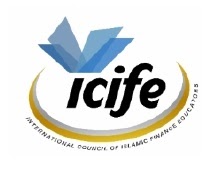AMIN Study Tour: In the Footsteps of Financial Inclusion Out of Poverty
by Cong Sitti Djalia Turabin Hataman, Member, ICIFE Eminent International Advisory Board
Since its birth in 1997, AMIN Anak Mindanao consistently pursued peace and development in Mindanao through community and peoples’ engagement. We respond to the needs of the region and its people by working both at the policy level through its Representatives in Congress and actual implementation of various development work through our partner and member organizations and individuals at the grassroots.
As part of its anti-poverty efforts, AMIN for the last three years explored different institutions and mechanisms that proved effective in contributing to the decrease of poverty incidence in other countries, looking into best practices that can be replicated in our own. We focused on Malaysia, being a neighbor ASEAN country with a remarkable story of bringing down to almost zero the number of poor households. From 37.4% in the 1980s, poverty incidence dropped to 1.7% in 2012 then in 2014 it was at its lowest with 0.6%. Official statistics also showed that the number of Malaysia’s poor households reduced by 52.7% from 2009 to 2012, a span of only 3 years.
What contributed to Malaysia’s success in addressing poverty? In our study of the Malaysia experience, a dynamic financial ecosystem composed of government and non-government institutions, providing innovative, responsive and efficient financial services, supported by community and household-based mechanisms facilitated an environment of financial inclusion that opened the door for many families out of poverty.
To share these learnings with different stakeholders in the country, Anak Mindanao, in coordination with the International Council of Islamic Finance Educators, with support from the Autonomous Region in Muslim Mindanao, facilitated a study tour in Kuala Lumpur Malaysia from October 17-23, 2016. This study tour visited institutions that became instrumental in creating the environment that proved effective for poverty reduction in Malaysia. The focus is not just on how they contributed individually, but also their inter-connectedness, deliberate and otherwise, that provided a comprehensive financial support system. The objective was to learn and recognize mechanisms, modalities and practices pioneered by these institutions, applicable in the country as an innovation or as an improvement or complementary to existing institutions and programs.

Furthermore, as part of AMIN’s advocacy for Islamic Finance as an instrument of financial inclusion towards addressing poverty not just for Muslim Filipinos but for the entire country, the study tour gave emphasis, but not exclusively focused on Islamic Finance.
1.) Maybank – one of the biggest conventional banks in Asia but also a pioneer in Islamic banking
2.) Amanah Ikhtiar Malaysia – the largest microfinance institution in Malaysia, and is recognized to be a key player in alleviating poverty especially among women;
3.) Majlis Amanah Rakyat (MARA) – a Malaysian government agency formed in 1966, to aid, train and guide Bumiputra (Malays and other indigenous Malaysians) in the areas of Business and Industry;
4.) AKPK (Agensi Kaunseling dan Pengurusan Kredit) – a Credit Counselling and Debt Management agency set up by Bank Negara Malaysia (Central Bank of Malaysia) in April 2006 to help individuals take control of their financial situation and gain knowledge on the wise use of credit;
5.) ICIFE (International Council of Islamic Finance Educators) – an international body that provide education in the field of Islamic Finance by providing curriculum development, course modules, dialogues and workshops, trainings, database and accreditation in Malaysia and other parts of the world.
6.) USIM (Universiti Sains Islam Malaysia) – an educational institution that supports capacity building of microfinance clients. Their intervention include entrepreneurial skills trainings, financial literacy, product research and development for SMEs, and others;
These institutions – from the banks that provide financing to facilitate economic activity, to a successful microfinance practice, an accessible institutionalized financial literacy and credit/debt management mechanism, supported by capacity-building programs for both service-providers and clients, and a think tank that provides scientific analysis of the overall financial industry – make up a financial inclusion ecosystem that has been proven and is therefore needed to win our fight against poverty.
Committee on Muslim Affairs, House of Representatives
Committee on Banks and Financial Intermediaries, House of Representatives
Committee on Banks and Financial Intermediaries, House of Representatives
Office of the Solicitor General
Bangko Sentral ng Pilipinas
Liwanag ng Kapayapaan Foundation
Liwanag ng Kapayapaan Foundation
Anak Mindanao sa Kongreso
Department of Agrarian Reform, ARMM
Regional Economic Zone Authority, ARMM
Department of Agrarian Reform, ARMM
Cooperative Development Authority, ARMM
CDA-ARMM
Anak Mindanao Foundation
Pinay Kilos
Member, AMIN People’s Council
House of Representatives
Rural Bank of Manolo Fortich
Growrite Substrates Philippines
AMIN sa Kongreso
Immediate plans of action as output of the study tour include: lobby and technical support to the Islamic Banking Bill; organizational partnerships for community financial literacy programs; roadmap for Islamic microfinance; proposed incorporation of Islamic Finance ecosystem towards poverty reduction in the ARMM Regional Development Agenda 2016-2019; proposed inclusion of Islamic Finance Development Strategy in the MTPDP (Medium Term Philippine Development Plan) 2016-2022; development of modules for Islamic Finance education, and others.
The participants received their Certificates of Completion from AMIN Rep. Sitti Djalia Turabin-Hataman and Dr Hazi Zulkifly Baharom, Project Director & Head Secretariat of ICIFE last November 29, 2016.







